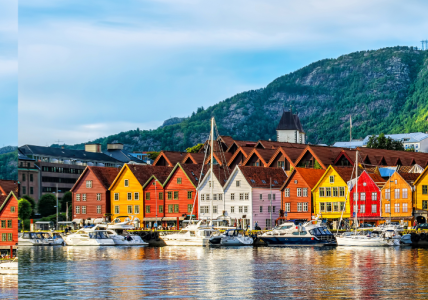Celebrating our legacy at the EuroVelo cycling conference in Viborg.
On 23 – 25 September, Viborg welcomes cycling enthusiasts, planners, and policymakers from across Europe for the EuroVelo Cycling Conference. As they gather to discuss the future of long-distance cycling, it's a great time to reflect on the pivotal role the Interreg North Sea Programme has played in developing the EuroVelo network, especially the first route, EuroVelo 12.
The genesis of EuroVelo 12
EuroVelo 12, the North Sea Cycle Route, is a shining example of transnational cooperation. Officially opened as the first EuroVelo route in 2001, the route was already initiated in the Interreg North Sea programme period 1994-1999 with the project 'North Sea Cycle Route'. The aim was to create a continuous, signposted cycle route that would promote sustainable tourism and allow cyclists to explore the diverse coastal regions of the North Sea.
It has since then gained fame in being the longest cycle route in the world. Spanning approximately 7,250 kilometers, EuroVelo 12 passes through the United Kingdom, Belgium, the Netherlands, Germany, Denmark, Sweden, and Norway. With a rich cultural heritage en-route it is the example of what Interreg can lead to.
A catalyst for cycling
The development of EuroVelo 12 with the project 'North Sea Cycle Route' and its successor 'Cycle-on' are not the only Interreg North Sea projects that have supported cycling over the years. Join us for a ride down memory lane in the video below.
By supporting cycling projects, the Interreg North Sea Programme has helped establish robust infrastructure, encouraged environmentally friendly travel and boosted local economies through tourism.
You can meet us, along with the BITS project and its successor, MegaBITS, at the conference in Viborg.
For more information visit the EuroVelo Cycling Conference 2024 website
Hope to see you there!
Top image: blyjak from Getty Images



